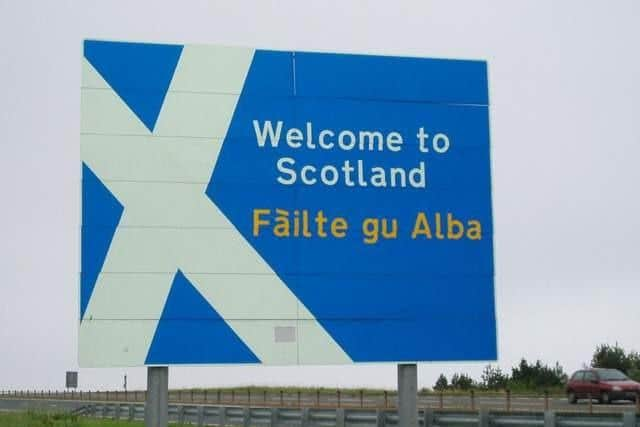Officials in Scotland accused of creating 'hostile environment' around Gaelic debate
Professor Conchúr Ó Giollagáin also accused Scotland's Gaelic quango, Bòrd na Gàidhlig, of evasiveness and “denialism” in the face of the "impending social collapse" of the language.
It comes more than two years after a major study led by Prof Ó Giollagáin warned Gaelic-speaking communities were unlikely to survive anywhere in Scotland beyond this decade unless urgent action was taken.
Advertisement
Hide AdAdvertisement
Hide Ad

Speaking at a conference in Stornoway on Monday, the academic criticised the “official disregard” for the findings of the Gaelic Crisis in the Vernacular Community research.
He highlighted “complacency among senior policy officials, and their advisors, who have steadfastly refused to enter any meaningful discussion to even consider new approaches, and who have sought to create a hostile environment around the Gaelic Crisis public debate”, adding “this hostility is in serious risk of descending into a lose-lose scenario of public ostracism”.
Prof Ó Giollagáin, of the University of the Highlands and Islands, said nearly all aspects of Gaelic affairs in Scotland “are dominated by a small group of individuals, probably no more than 20 people, who have access to those in power, and who control and direct Gaelic policy decision-making”.
He said the centre of gravity should be shifted towards “a focus on communities, their local representatives, the relevant councils, and Highlands and islands development bodies”.
Prof Ó Giollagáin is the director of the Soillse research network, which is hosting the “Rooting Minority Language Policy in the Speaker Community” conference over three days in Stornoway.
Mairi Macinnes, chair of Bòrd na Gàidhlig, said the body “ensures that the Gaelic voice is heard loud and clear in the development of national strategies and policies”.
She said: "The National Gaelic Language Plan recognises three types of Gaelic community – those in island and rural areas where the language is spoken daily; those in towns and cities which are based particularly around education and the online community.
“As it works to increase the use of Gaelic in daily life, Bòrd na Gàidhlig wants to support all speakers of the language in communities across Scotland.
Advertisement
Hide AdAdvertisement
Hide Ad"As part of our work towards developing the next National Gaelic Language Plan, Bòrd na Gàidhlig has recently carried out extensive community consultations across Scotland, including within the traditional Gaelic communities.
"These discussions reinforced the importance of wider social and economic issues that are affecting our island Gaelic communities, including housing, transport and connectivity. The feedback from the consultation will be central to final draft of the next National Gaelic Language Plan.
“Our key mission is to grow Gaelic and our funding of 60 Gaelic development officers across Scotland is central to this aim.
"Half of these Gaelic development officers are based in island communities to ensure that Gaelic remains a relevant and engaging aspect of daily life.”
A Scottish Government spokesman said: “Gaelic is significant part of Scotland's culture and this Government is committed to see it thrive and grow, which is why we launched a national consultation last week aimed at ensuring a robust future for the language.”
He said the situation for Gaelic speakers had improved in the past decade and this now needed to be built on.
Comments
Want to join the conversation? Please or to comment on this article.

